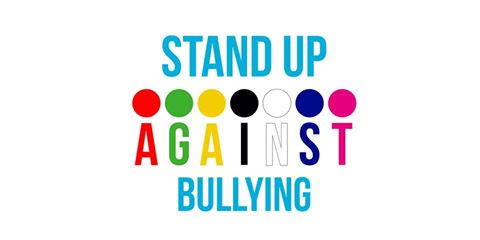 Our project “Stand Up Against Bullying” is a cross-sectorial cooperation with 7 countries i.e. Italy, Romania, Czech Republic, The Republic of Macedonia, Portugal and Poland who are coordinated by Turkey to combat bullying and early school leaving due to it. The coordinator country, Italy and Romania are new comers to the EU programme. To maximize the ultimate effect of main project activities, we started off our partnership with organizations with a successful background and experience in the project theme. Our project brings together a higher education institution, a VET center, a public primary school, a public secondary school, a youth organization, a centre for educational resources and assistance and a local/regional cultural organization. Our partnership is based on a collaborative work in an international setting to promote regional development and cross sectoral cooperation to build bridges and share knowledge between the different formal and informal education and training sectors. As the project team, we defined all the responsibilities among partners; considered risk factors which focus on threats and opportunities of the project; identified effective techniques to monitor and evaluate qualitative and quantitive indicators of achievement. These indicators will be used to measure progress towards goals.We will make impact assessment to evaluate achievements and to generate recommendations for future improvements.
Our project “Stand Up Against Bullying” is a cross-sectorial cooperation with 7 countries i.e. Italy, Romania, Czech Republic, The Republic of Macedonia, Portugal and Poland who are coordinated by Turkey to combat bullying and early school leaving due to it. The coordinator country, Italy and Romania are new comers to the EU programme. To maximize the ultimate effect of main project activities, we started off our partnership with organizations with a successful background and experience in the project theme. Our project brings together a higher education institution, a VET center, a public primary school, a public secondary school, a youth organization, a centre for educational resources and assistance and a local/regional cultural organization. Our partnership is based on a collaborative work in an international setting to promote regional development and cross sectoral cooperation to build bridges and share knowledge between the different formal and informal education and training sectors. As the project team, we defined all the responsibilities among partners; considered risk factors which focus on threats and opportunities of the project; identified effective techniques to monitor and evaluate qualitative and quantitive indicators of achievement. These indicators will be used to measure progress towards goals.We will make impact assessment to evaluate achievements and to generate recommendations for future improvements.
We ensured that our project comprises an appropriate mix of complementary participating organizations with necessary profile, experience and expertise to successfully deliver all these aspects of the project.
Cooperating with the relevant staff whose organizational profile, skills and competence are linked to the project goals and objectives will increase the impact of our project’s tangible and intangible results.
Within the increasing devastating effects of bullying, it has now become imperative that schools take the problem more seriously and explore ways to reduce it. In order to deal with bullying, which can appear in many kinds and degrees, schools should search for opportunities to build the capacity of students and teachers to take actions to stamp out bullying.
Our project’s main objective is to raise awareness of the problem and looking for tools to eliminate it. We aim to exchange our experiences and good practice, carry out peer learning activities and workshops, attend LTT activities and search for ways to appease the aggression at schools.
Two types of Learning-Teaching-Training activities are embedded in the project programme: 2 short-term joint-staff trainings and 5 short-term mobility of pupils. Our project employs project-based collaboration, peer-learning, workshops, virtual laboratories, virtual collaboration spaces, information, guidance, teaching and counselling activities to accomplish the goal of our project. Questionnaires, interviews, observations and assessments will help us measure our performance.
Our generic project methodology consists of 3 stages: a controlled start with pre-project activities, designing the project and organizational preparation; a controlled middle with proper monitoring/controlling the activity plan with documentation and reports; a controlled end with self-assesment and overall evaluation of the project lifecycle. Dissemination will be intensive at these last two stages. We will undertake a targeted and wide dissemination of our project’s tangible and intangible results through offline means such as making news in school magazines and press statements in local newspapers, internal meetings and team sessions, utilizing audiovisual materials developed during the project and using online tools such as project websites, social media networks and organizational websites.
Dissemination will be carried out by local and regional means in every partner country according to the dissemination and exploitation plan sketched corporately by all partners before the project and will be developed in two transnational meetings which will take place at the beginning in Italy and the end of the project in Romania. Through our transnational meetings we will make certain amendments on the PMI plan.
The ultimate goal of dissemination will be to increase the impact of project activities beyond the organisations directly participating in the project. To ensure sustainability and dissemination of project results we will build the capacity of our organizations through motivating our staff for new training activities and projects in local/regional or international context. The final outcomes of the project will be put together as a set of good practices including workshop and training reports and local level activities. These practices will maintain the sustainability of the project longer.
